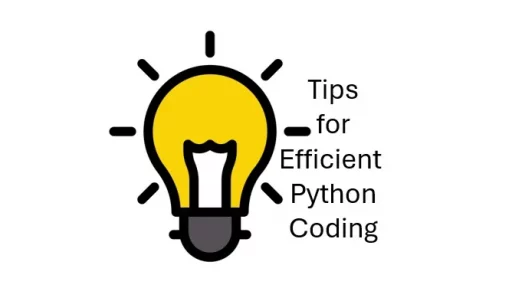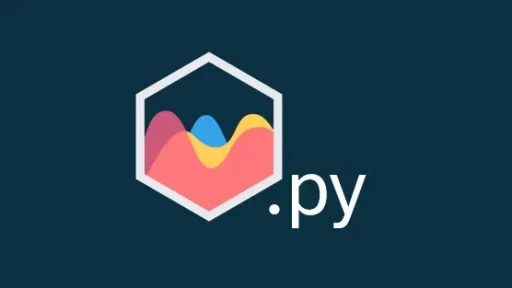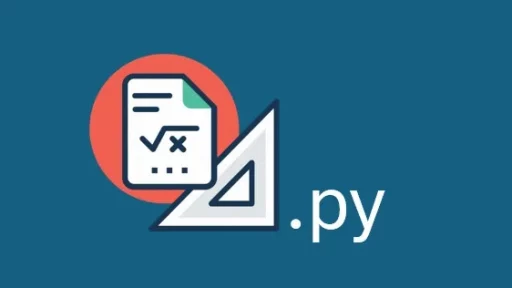GitHub is a treasure trove of Python resources, filled with repositories that can help developers at every stage of their journey. From learning basic syntax to mastering complex frameworks, there’s something for everyone. Some accounts stand out for the quality of their projects, the learning opportunities they provide, and their contributions to the Python community. In this article, we’ll explore some of the best GitHub accounts Python developers should follow and why they’re worth your attention.
1. TheAlgorithms
If you’re looking to deepen your understanding of algorithms and data structures, this is one of the best accounts to follow. TheAlgorithms is an open-source repository where developers contribute Python implementations of various algorithms. The collection includes everything from sorting and searching algorithms to more advanced concepts like dynamic programming and graph theory.
Each algorithm is well-documented, making it easy to understand the logic behind it. Whether you’re prepping for a technical interview or just brushing up on your problem-solving skills, TheAlgorithms is a fantastic resource. It’s also a great place to contribute if you want to practice writing clean, efficient Python code.
2. kennethreitz
Kenneth Reitz is the creator of Requests, the most popular Python HTTP library. His GitHub account is filled with high-quality projects that emphasize simplicity and clarity. Reitz is a strong advocate for making Python accessible to everyone, and his code reflects this philosophy.
Aside from Requests, his other repositories are worth checking out, such as Pipenv, which simplifies Python package management, and Tablib, a library for tabular data processing. His focus on writing developer-friendly libraries makes him a must-follow for anyone looking to write clean, maintainable Python code.
3. pallets
The Pallets Projects organization is home to some of Python’s most widely-used web development tools. This includes Flask, a lightweight web framework, and Jinja, a powerful templating engine. If you’re a Python developer interested in web development, this account is essential.
Flask, in particular, has gained a massive following due to its flexibility and simplicity, allowing developers to build web applications quickly without the overhead of a full-stack framework. The Pallets Projects repositories are well-maintained, with active discussions, frequent updates, and contributions from a large community. It’s an ideal account to follow if you want to stay current on Python web development trends.
4. realpython
Real Python is one of the best online resources for Python tutorials and courses, and their GitHub account complements this learning hub. Their repositories contain code snippets and projects that accompany their detailed tutorials. These cover a wide range of topics, from beginner-level introductions to advanced concepts like machine learning and web scraping.
The code is clean, well-commented, and easy to follow, making it an excellent resource for learning Python through practice. The Real Python team’s commitment to teaching makes their GitHub account a great place to start if you want hands-on examples that tie back to well-explained tutorials.
5. vinta
If you’re ever in need of a curated list of Python tools, libraries, and frameworks, Awesome Python is your go-to resource. Vinta’s repository is a massive collection of Python-related content, all organized into categories like web development, machine learning, data visualization, and more.
The repository is frequently updated, and the quality of the libraries listed is consistently high. Whether you’re searching for new libraries to try out or simply looking to broaden your Python toolkit, following Vinta will keep you informed of the latest and greatest Python tools.
6. psf
No list would be complete without mentioning the official Python Software Foundation (PSF) GitHub account. The Python repository contains the official CPython interpreter, which powers the Python language itself. If you’re interested in contributing to Python’s core development or learning how the language works under the hood, this is the place to be.
The PSF’s account also includes repositories for PEPs (Python Enhancement Proposals), which provide insights into new features and future developments of the language. Following this account is a must for developers who want to stay up-to-date on Python’s evolution and potentially contribute to its growth.
7. scikit-learn
For Python developers interested in machine learning, the scikit-learn repository is essential. Scikit-learn is one of the most popular machine learning libraries in Python, offering tools for everything from simple linear regression to complex clustering algorithms.
The repository is well-maintained, with extensive documentation and examples that make it easier for developers to implement machine learning models. Whether you’re a beginner looking to dip your toes into machine learning or an experienced developer working on a new project, this account is invaluable.
8. matplotlib
If you’re working with data visualization in Python, matplotlib is a library you’ll need. This GitHub repository contains everything you need to generate plots, charts, and graphs in Python, from simple line graphs to complex multi-layered plots.
The codebase is actively maintained, and the repository includes numerous examples that make it easier to learn how to create effective visualizations. For anyone working with data in Python, matplotlib’s repository is a goldmine of resources and examples to help bring your data to life.
9. mitmproxy
Mitmproxy is an interactive HTTPS proxy for man-in-the-middle attacks. While that may sound intimidating, it’s an incredible tool for debugging and testing applications, particularly when working with APIs or web applications.
This repository is a great follow for Python developers who need to inspect, modify, or replay HTTP traffic. The maintainers provide detailed guides, clear code, and frequent updates. If your work involves API testing or security analysis, Mitmproxy is an indispensable tool.
Thank you reading this article. We hope you found it helpful and informative. If you have any questions, or if you would like to suggest new Python code examples or topics for future tutorials/articles, please feel free to join and comment. Your feedback and suggestions are always welcome!
You can find the same tutorial on Medium.com.


